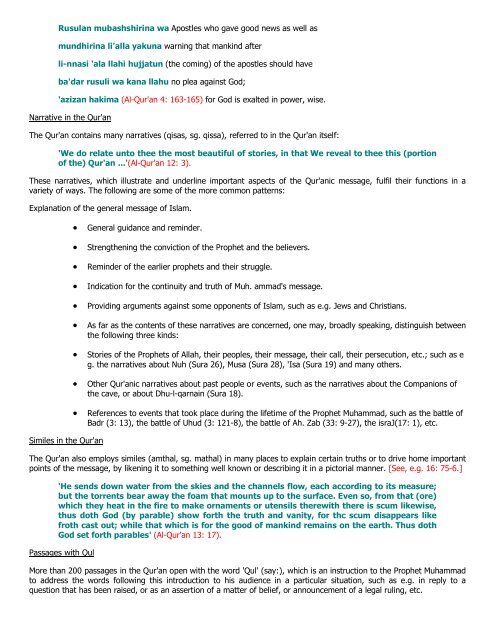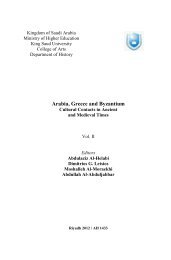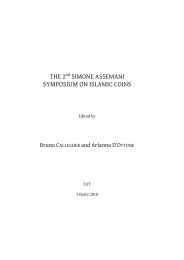ulum-al-quran
ulum-al-quran
ulum-al-quran
Create successful ePaper yourself
Turn your PDF publications into a flip-book with our unique Google optimized e-Paper software.
Rusulan mubashshirina wa Apostles who gave good news as well as<br />
mundhirina li'<strong>al</strong>la yakuna warning that mankind after<br />
li-nnasi '<strong>al</strong>a llahi hujjatun (the coming) of the apostles should have<br />
ba'dar rusuli wa kana llahu no plea against God;<br />
'azizan hakima (Al-Qur'an 4: 163-165) for God is ex<strong>al</strong>ted in power, wise.<br />
Narrative in the Qur'an<br />
The Qur'an contains many narratives (qisas, sg. qissa), referred to in the Qur'an itself:<br />
'We do relate unto thee the most beautiful of stories, in that We reve<strong>al</strong> to thee this (portion<br />
of the) Qur'an ...'(Al-Qur'an 12: 3).<br />
These narratives, which illustrate and underline important aspects of the Qur'anic message, fulfil their functions in a<br />
variety of ways. The following are some of the more common patterns:<br />
Explanation of the gener<strong>al</strong> message of Islam.<br />
<br />
<br />
<br />
<br />
<br />
<br />
<br />
<br />
<br />
Gener<strong>al</strong> guidance and reminder.<br />
Strengthening the conviction of the Prophet and the believers.<br />
Reminder of the earlier prophets and their struggle.<br />
Indication for the continuity and truth of Muh. ammad's message.<br />
Providing arguments against some opponents of Islam, such as e.g. Jews and Christians.<br />
As far as the contents of these narratives are concerned, one may, broadly speaking, distinguish between<br />
the following three kinds:<br />
Stories of the Prophets of Allah, their peoples, their message, their c<strong>al</strong>l, their persecution, etc.; such as e<br />
g. the narratives about Nuh (Sura 26), Musa (Sura 28), 'Isa (Sura 19) and many others.<br />
Other Qur'anic narratives about past people or events, such as the narratives about the Companions of<br />
the cave, or about Dhu-l-qarnain (Sura 18).<br />
References to events that took place during the lifetime of the Prophet Muhammad, such as the battle of<br />
Badr (3: 13), the battle of Uhud (3: 121-8), the battle of Ah. Zab (33: 9-27), the israJ(17: 1), etc.<br />
Similes in the Qur'an<br />
The Qur'an <strong>al</strong>so employs similes (amth<strong>al</strong>, sg. math<strong>al</strong>) in many places to explain certain truths or to drive home important<br />
points of the message, by likening it to something well known or describing it in a pictori<strong>al</strong> manner. [See, e.g. 16: 75-6.]<br />
'He sends down water from the skies and the channels flow, each according to its measure;<br />
but the torrents bear away the foam that mounts up to the surface. Even so, from that (ore)<br />
which they heat in the fire to make ornaments or utensils therewith there is scum likewise,<br />
thus doth God (by parable) show forth the truth and vanity, for thc scum disappears like<br />
froth cast out; while that which is for the good of mankind remains on the earth. Thus doth<br />
God set forth parables' (Al-Qur'an 13: 17).<br />
Passages with Qul<br />
More than 200 passages in the Qur'an open with the word 'Qul' (say:), which is an instruction to the Prophet Muhammad<br />
to address the words following this introduction to his audience in a particular situation, such as e.g. in reply to a<br />
question that has been raised, or as an assertion of a matter of belief, or announcement of a leg<strong>al</strong> ruling, etc.





